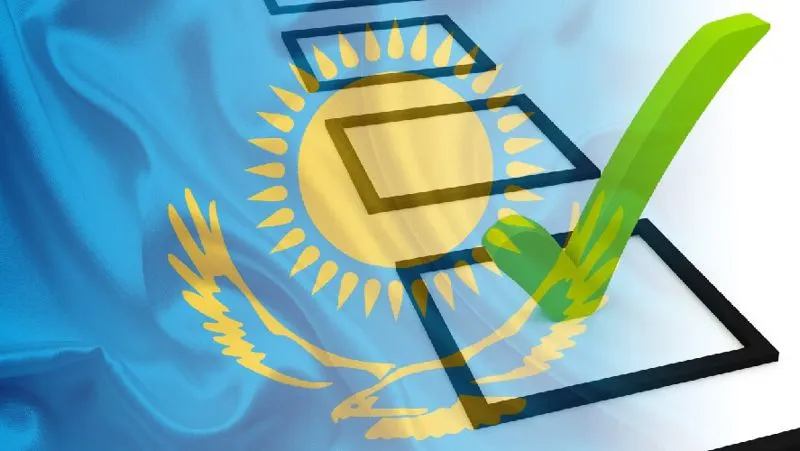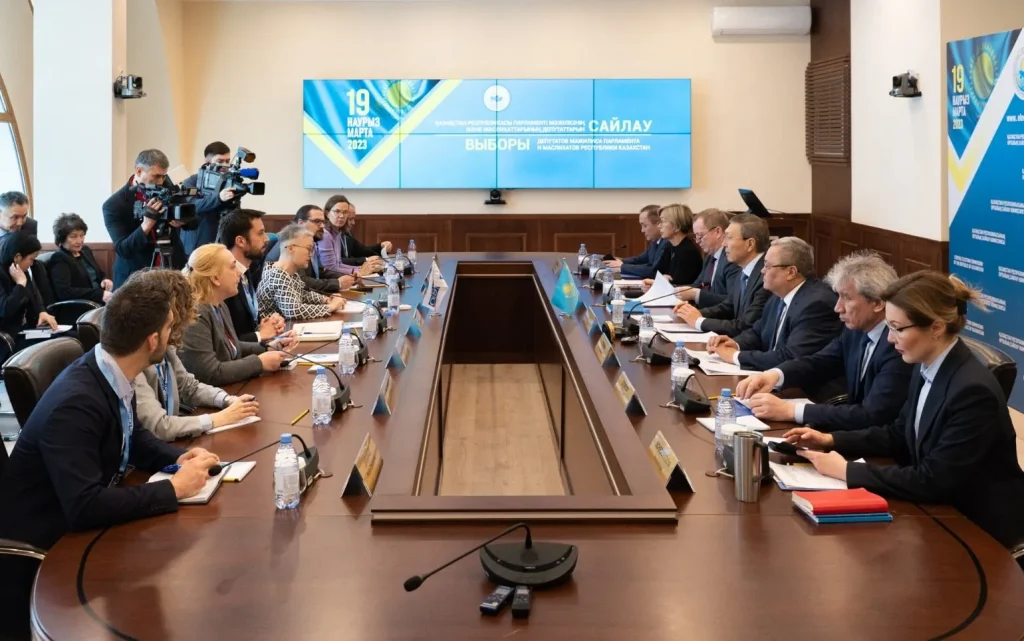
Last year was full of global geopolitical changes, which intensified the struggle for world order. An internal upheaval in Kazakhstan added to the chaos.
It soon became obvious that the people of the country were tired of idle talk about political reforms and wanted radical changes. Genuine measures were required to meet the socio-economic needs of the people, radically transform the state system and improve the efficiency of the economic sector.
In light of these developments, President Kassym-Jomart Tokayev presented new ideas during his address to the nation in March 2022. In a speech titled The New Kazakhstan: A Path of Renovation and Modernization, he proposed sweeping changes that required many amendments to the Kazakh Constitution.
In particular, reforms were initiated on limiting presidential powers, delegating more powers to parliament and Kazakhstan’s transition from a “super-presidential form of government to a presidential republic with a strong parliament”.
The reforms also included measures, such as banning presidential relatives from holding leadership positions in state bodies and quasi-state companies.
The reforms were also aimed at transferring the electoral system from a fully-proportional system to a mixed model. In the mixed model, 70% of the members of the Mazhilis (lower house of Parliament) were to be elected on a proportional basis and 30% on a majority vote basis.
In other words, the proposed change was for 30% of the seats to be elected by majority vote in single-member constituencies.

The Organization for Security and Cooperation in Europe (OSCE) Office for Democratic Institutions and Human Rights (ODIHR) mission conducted a meeting with the Central Election Commission (CEC) Chairman Nurlan Abdirov. Photo credit: election.gov.kz.
In his address, Mr Tokayev also proposed reducing the quota for presidential appointees to the Senate (upper house of Parliament) from 15% to 10%. He voiced the idea that the Senate should be relieved of the power to change or return bills passed by the Majilis. This would result in the Senate only having the power to approve or reject bills.
The President also announced that the lower house would be empowered to approve candidates for the post of President of the Constitutional Court and the Supreme Judicial Council.
Finally, Mr Tokayev proposed lowering barriers to the formation of political parties through a 75% reduction in the number of signatures required to form a party. This resulted in a reduction from 20,000 signatures to 5,000.
He also proposed to reduce the minimum number of members required in regional offices from 600 to 200.
The reform package, accompanied by major constitutional amendments, was approved by 77 per cent of voters in a referendum held in June 2022.
On January 19, 2023, when Mr Tokayev dissolved the lower house of parliament, he announced fresh elections scheduled for March 19, 2023.
This election is a significant step towards the reforms that he is pursuing to address the enormous domestic and international challenges that Kazakhstan is currently facing.
President Tokayev believes that the new electoral cycle will reset the political system. The elections “will give new impetus to the comprehensive modernization of the country”.
According to his recent statement, the upcoming parliamentary elections are a logical continuation of the constitutional reforms adopted in 2022, when violent nationwide unrest prompted the authorities to develop a comprehensive programme of economic and political reforms.
It is hoped that the March 19 parliamentary elections, which will be held under a new, mixed electoral system, will bring change and promote democratization and political liberalization in Kazakhstan.
 This time, 70% of the candidates for the lower house will be elected from party lists, while the remaining 30% will be elected in their constituencies. This means that independent candidates may get a chance to be elected after a long time.
This time, 70% of the candidates for the lower house will be elected from party lists, while the remaining 30% will be elected in their constituencies. This means that independent candidates may get a chance to be elected after a long time.
Two new parties will also take part in the elections – the Green Party, known as “Baitaq”, and the centre-right “Respublica” Party.
There is confidence that in the future Kazakhstan will indeed move towards greater political liberalization and the creation of a stronger parliament.
The reforms proposed by Mr Tokayev are promising. They can provide a solid foundation for building a truly multi-party system, help put in place effective oversight mechanisms and increase accountability at various levels of the government.
The economic block also shows serious transformation aimed at increasing production capacities, launching industrial zones, creating new jobs, opening and
relocating new industries, as well as increasing investment attractiveness and creating advanced infrastructure and digital finance sector.
The effectiveness of these moves have been highly appreciated by foreign partners and advanced companies.
There is no doubt that Kazakhstan will successfully hold the upcoming parliamentary elections and prove its commitment to democratic change.












